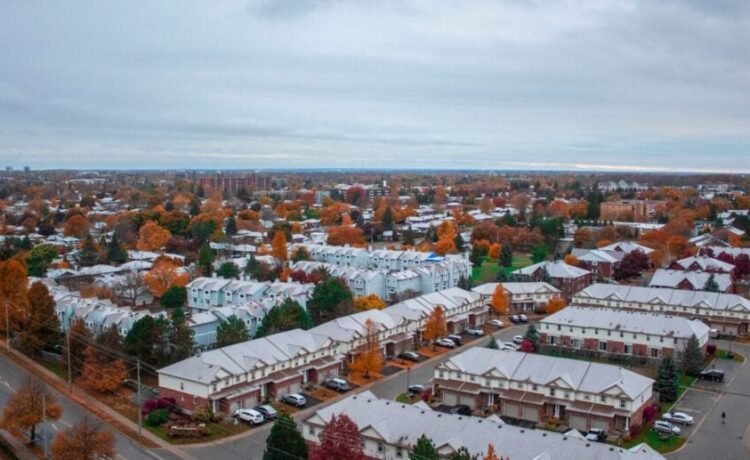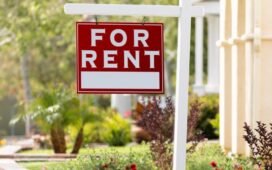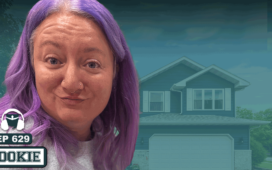If you’re wondering which real estate markets make for the best investments going into 2025, the suburbs are where the action is. With affordability a major concern for buyers, low-priced suburban areas—often below $250,000—have seen a surge of new residents.
The good news for prospective investors is that, according to a recent report by GoBankingRates.com, these pockets of real estate gold are spread out throughout the country and represent some of the fastest-growing areas.
The Lure of the Suburbs
A recent Harvard study found that contrary to the demographic movements of previous generations in the 2000s and early 2010s, young adults in their 20s and 30s are the driving force behind the movement to the suburbs today. The reason? Cities are too expensive to live in.
“While there is extensive research and discussion about millennial preferences for walkable urban areas, we found that the places with the largest increases of early millennials were both suburban and on the periphery of metropolitan areas,” said Riordan Frost, a senior research analyst at Harvard’s Joint Center for Housing Studies and one of the authors of a report about millennial migration with coauthors Whitney Airgood-Obrycki and Hyojung Lee.
Before we get into the top five, it’s worth looking at the housing market’s landscape as things stand right now.
As you can see, cash flow is tough to come buy, and prices are still elevated. That’s why finding affordable suburbs can really open the door to quality purchases.
The Top Five
To qualify for GoBankingRates.com’s list of hot suburban markets, each area needed a 9% or greater change in population from 2020 to 2022 and was required to be part of a metro area with at least 1 million in population. All home values had to be below $500,000, with all data collected as of Aug. 13.
When the top five of the 50 listed suburbs are examined, the first thing that becomes evident is the geographical and price diversity.
1. Mooresville, North Carolina
- July 2024 home value: $480,430
- 2020 total population: 38,498
- 2022 total population: 50,025
- Two-year percentage change in total population: 29.94%
- Median rent: $2,273
A suburb of Charlotte, Mooresville generally skews on the higher price side, with homes close to $500,000. However, a Zillow search shows plenty of homes, even new-construction three-bedroom communities, below $250,000.
Mooresville is only a 30-minute commute (28 miles) to Charlotte, a hub for banking and financial services and manufacturing, energy, and automotive business.
2. Hamtramck, Michigan
- July 2024 home value: $167,930
- 2020 total population: 21,704
- 2022 total population: 27,842
- Two-year percentage change in total population: 28.28%
- Median rent: $1,050
Your money goes a long way in Hamtramck, with many three- and four-bedroom homes priced below $200,000. The Detroit suburb is only 15 minutes (six miles) away from the city, allowing residents to enjoy suburban living while being a hop, skip, and a jump away from the action downtown.
3. Buckeye, Arizona
- July 2024 home value: $407,118
- 2020 total population: 74,467
- 2022 total population: 95,042
- Two-year percentage change in total population: 27.63%
- Median rent: $1,995
In Buckeye, a Phoenix suburb, you can buy a stylish, renovated ranch for under $400,000. Buckeye is a 40-minute commute to Phoenix, now America’s fifth-largest city and one of the fastest-growing cities in the country. Despite fears of extreme heat and water shortages, people are drawn to Phoenix for healthcare, leisure and tourism, tech, education, e-commerce, and finance employment opportunities.
4. Union City, Georgia
- July 2024 home value: $259,054
- 2020 total population: 21,976
- 2022 total population: 26,869
- Two-year percentage change in total population: 22.27%
- Median rent: $1,829
In another imminently affordable suburb, it’s easy to snap up a stylish new or recently renovated three-bedroom home for under $250,000. A mere 27 minutes (17 miles) from Atlanta, this is a great commuter suburb that allows you to work from home and still attend business meetings, socialize in the city, or commute daily.
5. Canyon Lake, Texas
- July 2024 home value: $461,779
- 2020 total population: 26,338
- 2022 total population: 32,035
- Two-year percentage change in total population: 21.63%
- Median rent: $1,688
Located about 40 miles from downtown San Antonio—like most of Texas—Canyon Lake requires a lengthy drive to go anywhere. However, San Antonio and its suburbs are booming. According to the Census Bureau, the metro area was one of the fastest-growing cities in the U.S., adding 22,000 residents in 2023 alone.
As the name suggests, Canyon Lake is a great place to cool off from the Texas heat. There are 8,200 acres of surface area water in Central Texas’ Hill Country, meaning water sports are a big attraction. Campgrounds and marinas make it a great place for family activities. The natural attraction skews many house prices into the mid-to-high $400,000s, but there are also plenty of decent homes in the $200,000-$300,000 range.
Gen Zers Are Moving to Cities In Droves
Interestingly, while millennials and older generations are moving out of cities, Gen Zers are moving in. Between 2021 and 2022, more than 42% of people moving to New York City were Gen Zers, according to Census Bureau data. Plus, major metropolitan areas, including New York, are experiencing population losses among all generations, except for Gen Z, a report shows.
If cities are so expensive, how can Gen Zers afford them? To use today’s terminology, co-living. However, roommates are often only sustainable for singles or couples without kids. For those looking to start a family, the suburbs remain the big draw, and in doing so, they are changing the image of their parents’ suburbs with trendy bars, restaurants, gyms, and spas.
Final Thoughts
The traditional concept of cash flow has been severely tested during the recent spike in housing prices and interest rates. The 1% rule for investing has seemed unrealistic for a while. However, in certain suburban markets, such as those mentioned here, it’s just about doable if you ignore the median house prices and hunt around the edges for deals.
The suburbs are great places to own rentals. They consist mostly of families who make stable renters because they live there to be in a decent school district. Thus, they are incentivized to pay rent and stay in the school district and not disrupt their kids’ lives and education while being close to a major city for work. Sought-after suburban areas usually maintain their coveted status for these reasons, meaning that investors should have no problem filling the vacancy when one tenant eventually moves out.
Find the Hottest Markets of 2024!
Effortlessly discover your next investment hotspot with the brand new BiggerPockets Market Finder, featuring detailed metrics and insights for all U.S. markets.

Note By BiggerPockets: These are opinions written by the author and do not necessarily represent the opinions of BiggerPockets.















